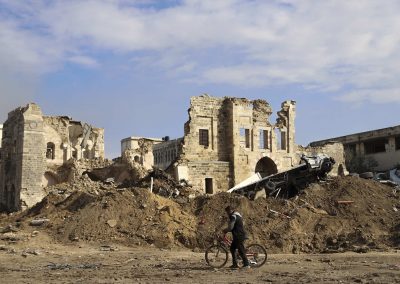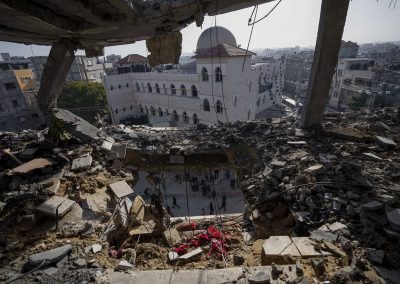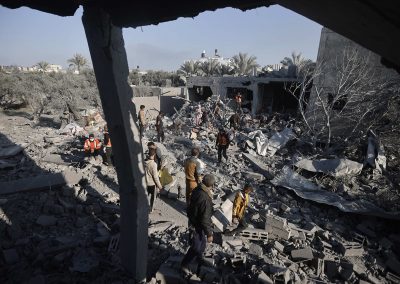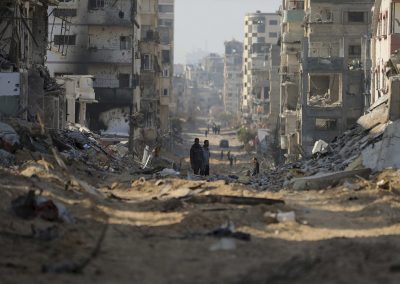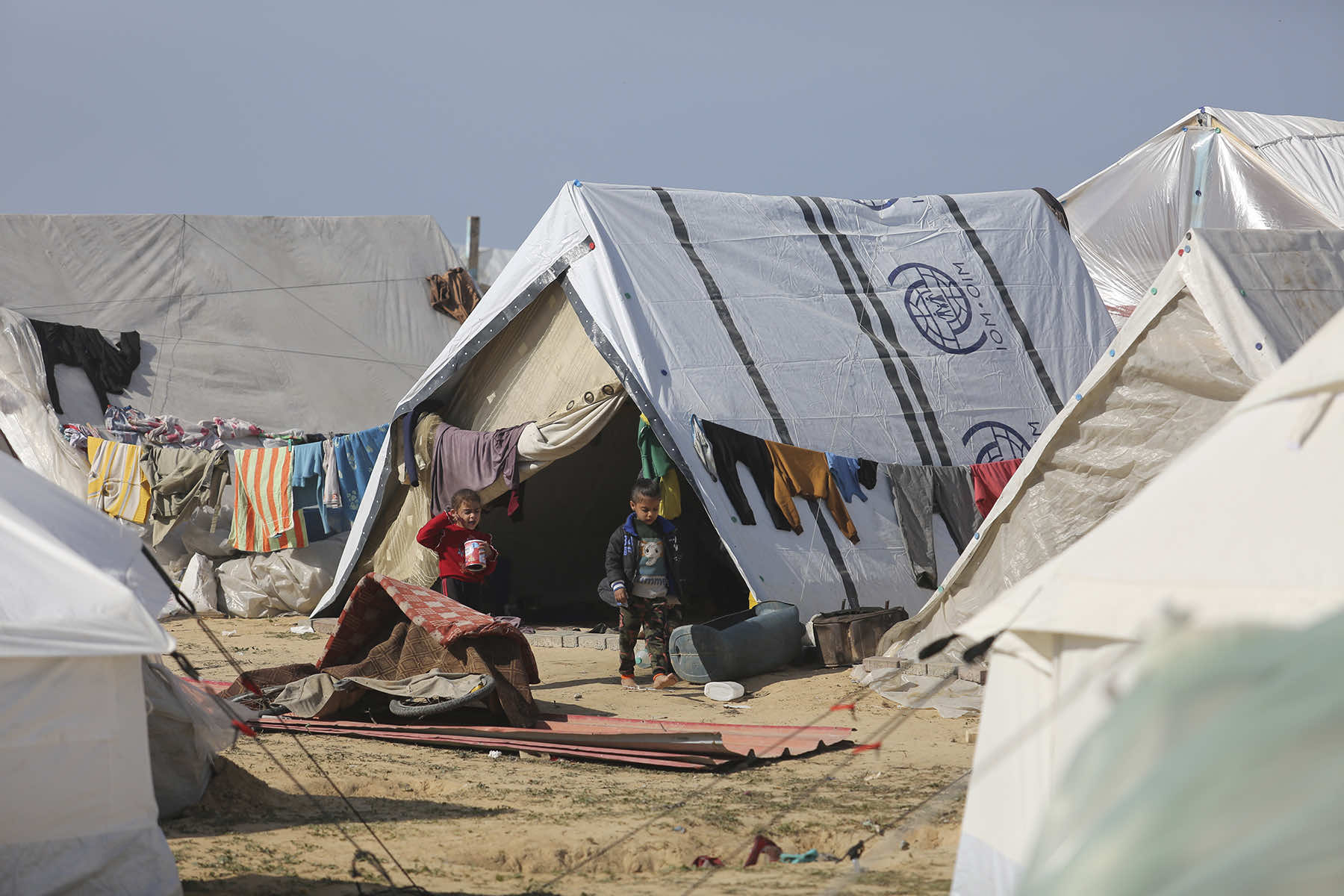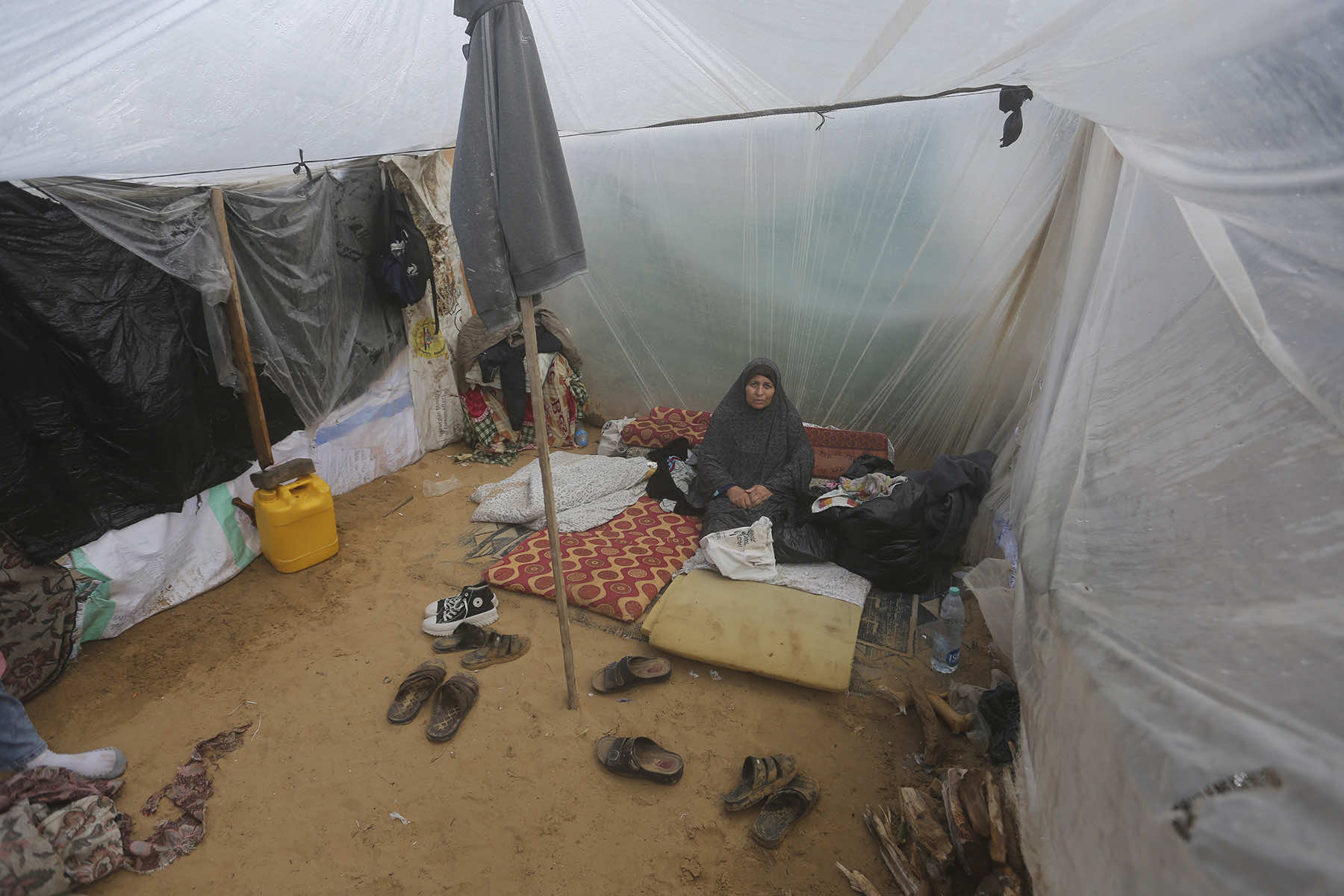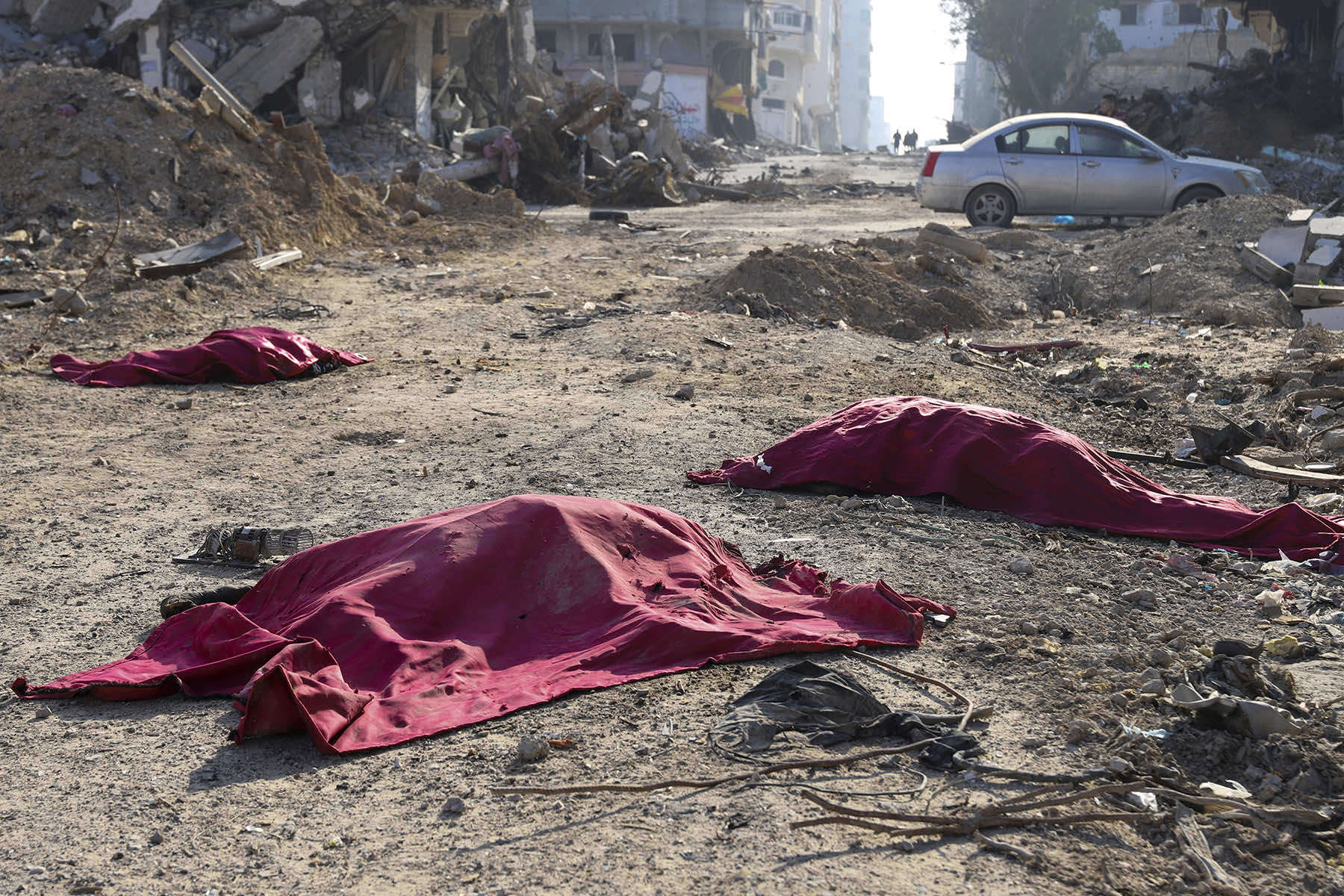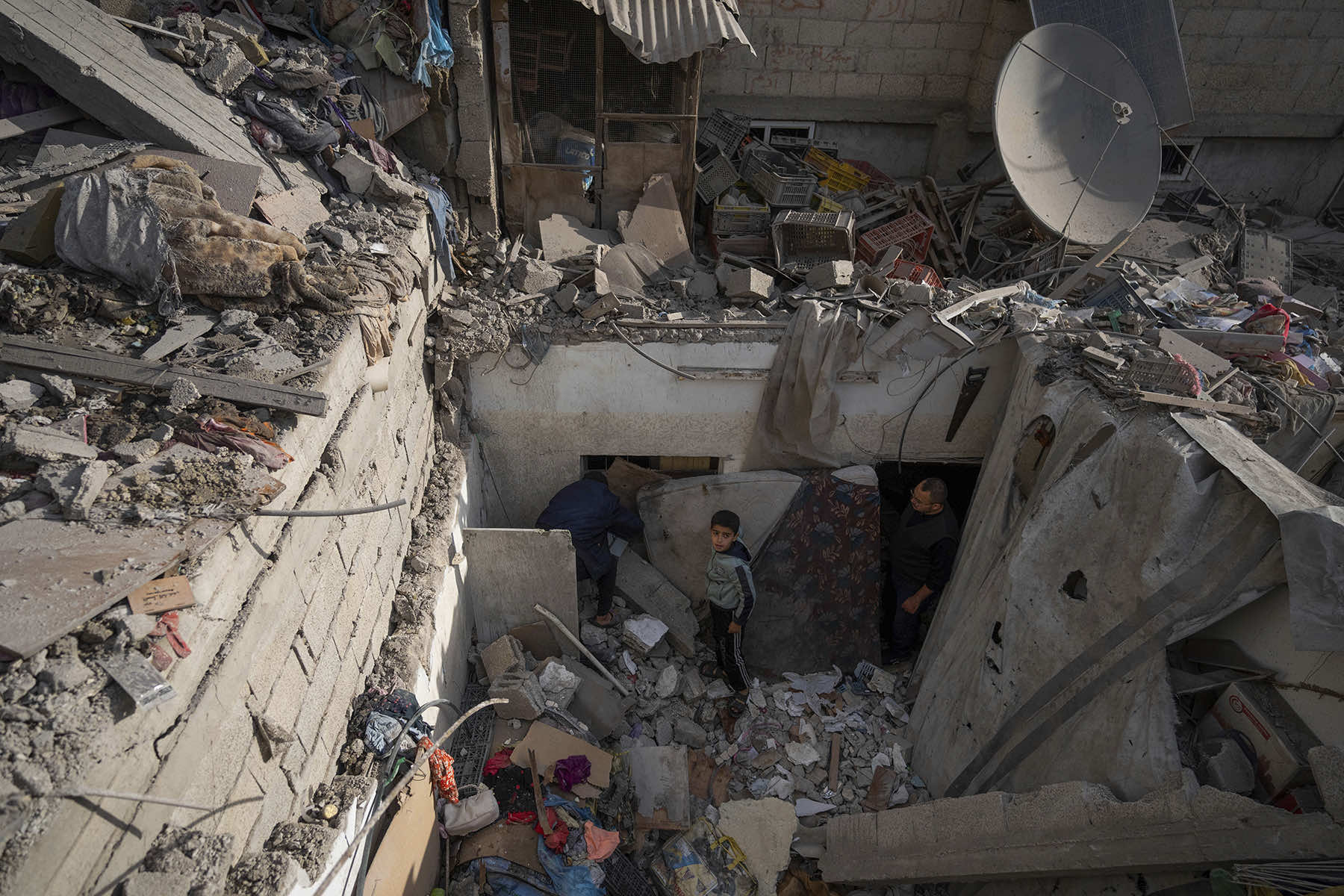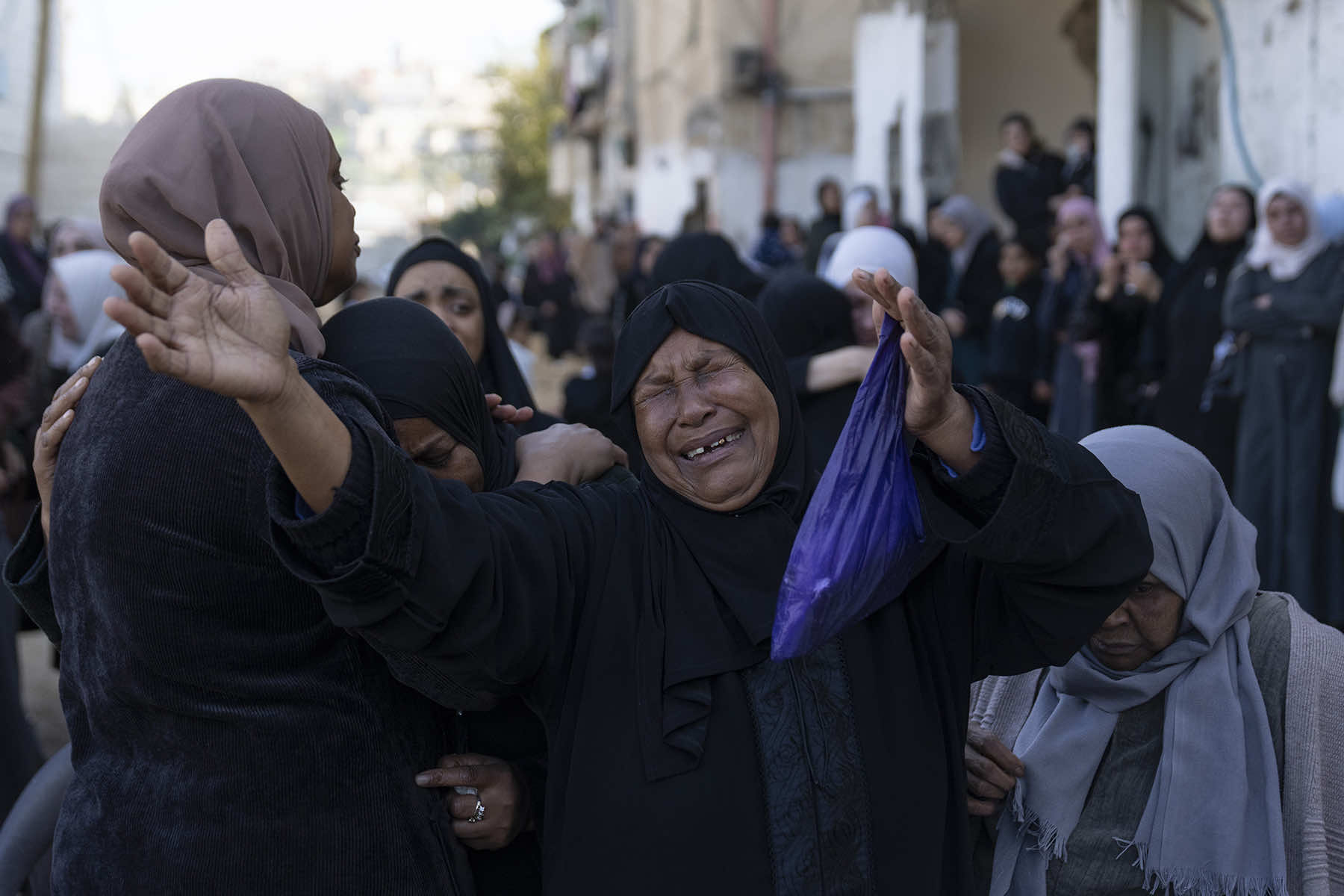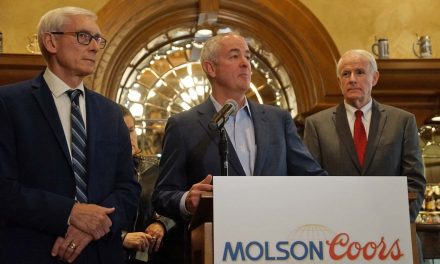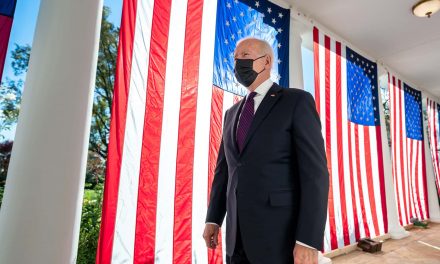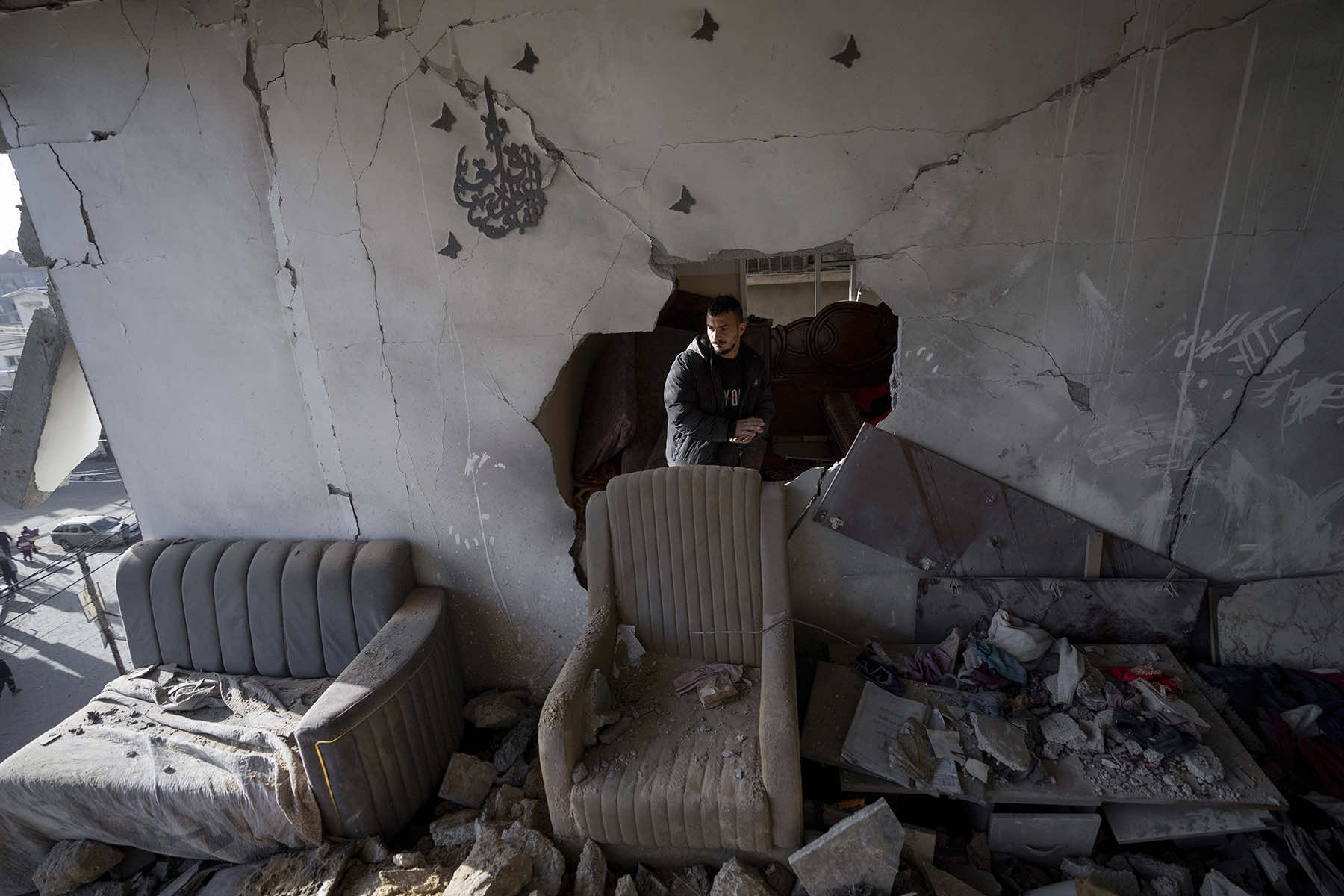
Interfaith leaders in Milwaukee and the Wisconsin Council of Rabbis each released statements about the current war in the Holy Land, sharing their anguish over the mounting losses and suffering in Israel and Gaza. While both groups expressed their hope of a ceasefire with the ultimate goal of reaching a lasting peace, many of the strategies for getting there were less aligned.
A total of 70 clergy from the Milwaukee area joined together to sign a statement, in an effort to “bring a unified moral voice to the growing catastrophe in Gaza and increasing violence throughout Israel and Palestine.” The religious and lay leaders were from the three Abrahamic Religions of the world – Judaism, Christianity, and Islam – as well as Eastern religious traditions.
In its own statement, the Wisconsin Council of Rabbis said it understood that the violence in Israel and Gaza had deeply impacted local communities across Wisconsin, including many people who have lost or are worried about friends and family in the region.
“As clergy, part of our calling includes caring for the safety and spiritual well-being of everyone in our community, including those with whom we differ in our positions,” said Rabbi Steve Adams, President of the Wisconsin Council of Rabbis, in a press release.
He noted that the Council was “aware of a statement on Israel and Gaza, released and signed by multi-faith leaders,” and in turn wanted to offer their own statement.
“We hope that we can focus our efforts on comforting all in our community who are distraught and hurting, promoting genuine dialogue in favor of one-sided statements,” he added.
STATEMENT BY MILWAUKEE INTERFAITH CLERGY:
“We represent the voices of many who grieve the death of innocent human beings in a land called holy by our traditions. We mourn the decades of occupation and oppression, of terrorism and military violence.
We are anguished by the October 7th Hamas attack on Israel and by the brutal and ongoing death and destruction brought upon the people of Gaza and the West Bank by Israel. Time and again it has been demonstrated that there will be no military solution to this conflict.
As Jews, as rabbis, as Christians, pastors and priests, as Muslims, imams and lay leaders, as Buddhists, as human beings — we are pleading with our communities to rise through despair and grief to save valuable human lives on all sides of this conflict and to call for a complete ceasefire now, brokered by the United Nations.
- We call for an end to all bombing and ground war.
- We call for an end of settler and IDF violence in the Occupied West Bank.
- We call for the release of all Israeli and international hostages being held in Gaza and all civilian Palestinians being held by Israel.
- We call for the immediate flow of aid to Gaza for humanitarian relief.
- We call for immediate engagement by the international community toward a just and lasting peace in Israel-Palestine.
As Americans, we call upon our leaders to stop supporting and enabling this conflict. Ceasefire is the only way to prevent more death and destruction.
We call on Senator Tammy Baldwin, Senator Ron Johnson, and Representative Gwen Moore to reflect on the suffering of the victims of war, especially the children, and to change their stance from a temporary “pause” on the killings to a “ceasefire.”
We make a stand for a sustainable peace, now. This peace must include a fight against rising antisemitism and Islamophobia in our communities. We invite all people of faith, as well as others of good conscience, to join us in this call for a complete ceasefire now.”
STATEMENT BY WISCONSIN COUNCIL OF RABBIS:
“The Wisconsin Council of Rabbis, representing Jewish congregations throughout the state and across the religious spectrum, grieves the many lives lost and many more injured in the war in Israel and Gaza. The scale of human tragedy is immense and we join the greater Milwaukee community in hoping for a path of actions leading to a total cessation of violence.
- We express heartbreak over the suffering and mounting loss of life of innocent people in Israel and Gaza.
- We pray for the return of the hostages and the bodies of those killed in captivity.
- We affirm the inherent human dignity of both Palestinians and Israelis. Every life is of infinite value. As Judaism and Islam teach: to end a life is to destroy an entire world; to save a life is to save an entire world.
- We decry attempts to delegitimize the State of Israel and to dismiss the historical Jewish connection to the land of Israel, the Jewish ancestral homeland.
- We recognize Hamas, Islamic Jihad, the Houtis in Yemen and Hizb’Allah in Lebanon as Iranian sponsored terrorist organizations singularly dedicated to the destruction of the State of Israel and the establishment of an Islamic caliphate across the Middle East. A modern Palestinian state is not their goal.
- We understand that those terror groups are not synonymous with the Palestinian people.
- We call on the international community to demand that Hamas retract and renounce its stated commitment to repeat the atrocities of October 7th against Israelis as well as to hold Hamas responsible for their active part in perpetuating this war.
- We demand the cessation of the deliberate targeting of civilians as a precondition of any ceasefire. We denounce narratives that seem calibrated to create the outrageous impression that Israeli soldiers deliberately kill Palestinian children.
- We insist that international bodies and non-governmental organizations acknowledge and take a stand against the use of rape, torture and kidnapping for political aims.
- We understand that Israel’s military response to the October 7th attacks was taken in self- defense and not as retaliation. For Israel, Hamas and its allies are an existential threat.
- We expect Israel to ensure the rights and safety of Palestinians on the West Bank are protected and that violence perpetrated by settlers will be punished according to Israeli law to which they are subject.
- We ask the Israeli Prime Minister to disavow racist and genocidal statements made by his ministers as well as those calling for the displacement of Gazan civilians.
We recognize that the destinies of Israelis and Palestinians are inextricably bound up together. We desire an outcome that allows both Palestinians and Israelis to achieve self-determination, safety and peace, and we pray for leaders on both sides committed to realizing this outcome.
We call upon people of good faith to demand a cease-fire predicated on the dismantling of the multiple terrorist organizations in Gaza working toward Israel’s destruction and the return of every hostage and every deceased hostage’s body.
We pray, ultimately, for the realization of the prophet Micah’s vision: “And all shall sit under their vines, and under their fig trees, and there shall be none to make them afraid.”
Numerous faith leaders in Milwaukee, Wisconsin, and across the United States have been united in their call for a ceasefire in Gaza – and peace in the Middle East long before the events of October 7. Yet they have disagreed on the methods to achieve that, due to a confluence of diverse theological interpretations, historical and political contexts of the region, and varying responsibilities towards their communities.
These religious leaders, influenced by their distinct faith doctrines, have often shared opposing viewpoints on the most effective approach to peace. That divergence has been further compounded by the need to balance humanitarian concerns with underlying political issues, the influence of extremist elements within faith groups, communication barriers, and external pressures from international, and regional actors.
Despite these differences in methodology, their collective call for peace underscores a shared recognition of the urgent need to end violence and suffering in Gaza.
© Photo
Mohammed Dahman (AP), Hatem Ali (AP), Mohammed Hajjar (AP), Fatima Shbair (AP), and Nasser Nasser (AP)

